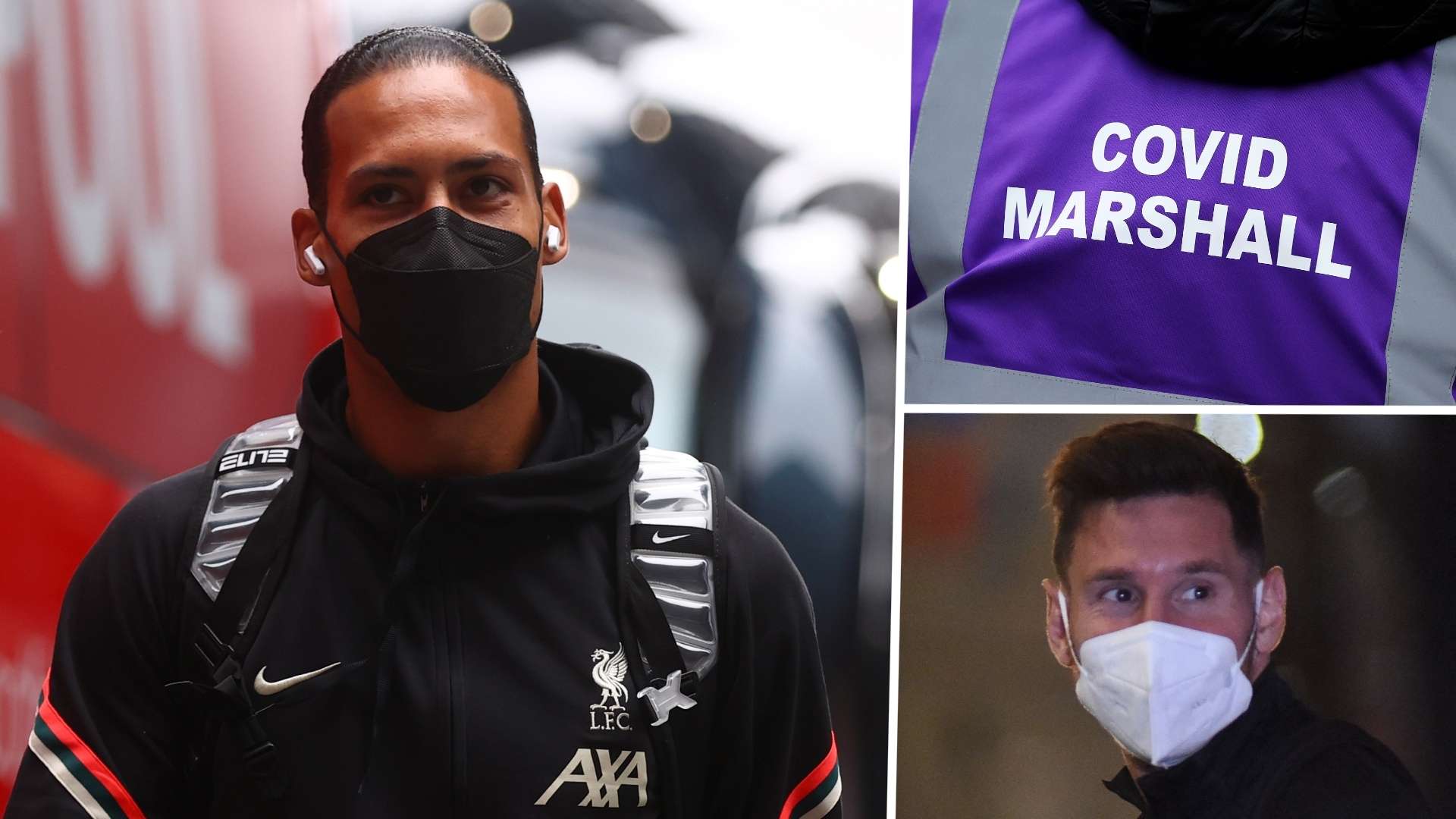The spread and attempted containment of Covid-19 has been a major feature of life across the world ever since the outbreak of the virus at the end of 2019.
It has had a massive impact on lots of different industries and football is no different, with a number of tournaments being moved back, fixtures being postponed and even cancelled due to public health concerns.
The virus continues to have an effect on day-to-day life for footballers, with Premier League clubs' preparations for games notably being thrown into disarray over the festive period after a number of localised outbreaks within squads.
GOAL brings you everything you need to know about how long Covid-19 keeps footballers out of action.
How long does Covid-19 keep footballers out for?
If a footballer contracts Covid-19 they will be out of action for, at the very least, a number of days in order to fulfil self-isolation guidelines.
The period of time an individual must spend in self-isolation varies, but, for Premier League footballers in England, it currently stands at 10 days - per the NHS. However, it is possible for an individual to come out of self-isolation after five days, provided they have two negative lateral flow tests, 24 hours apart.
The rules vary from country to country, with Germany's self-isolation period lasting 14 days - or until a negative PCR test is produced - so Bundesliga footballers would be out of action for longer than their Premier League counterparts. However, in Spain, the period of self-isolation was reduced from 10 days to seven days, meaning La Liga players have a shorter time out.
Of course, as with any illness, the length of time Covid-19 keeps a footballer out of action for ultimately depends on the severity of the symptoms and how long they persist. For example, a player could contract the virus, but be completely asymptomatic, and their recovery time is simply however long they must self-isolate. However, it is possible for symptoms to persist for a week or more, meaning the recovery time would be longer.
Lionel Messi missed a number of weeks and a handful games for Paris Saint-Germain in January 2022 after contracting Covid-19. After missing the majority of the month with the virus, the Argentina international said, in an Instagram post, that, "it took me longer than I thought to be well".
What about 'Long Covid'?
For some footballers, the effects of contracting Covid-19 have had a lingering impact, with a number of individuals being ruled out for a longer period of time than first anticipated.
When it comes to long Covid there is no set period and it depends on the individual, but it can see a player on the sidelines for weeks, months or even a year.
Manchester United goalkeeper Dean Henderson was unable to take a full part in the Red Devils' 2021-22 pre-season training camp in August 2021 due to what the club described as "prolonged fatigue", three weeks after he contracted Covid-19. The England international was only included in matchday squads approximately two months later, in October, but subsequently found himself playing back-up to David de Gea.
Finlay MacNab had been playing for League One team Wimbledon before 'long Covid' disrupted his career and kept him out of action for over a year, with fatigue, diet issues and heart-rate problems taking their toll.
"With long Covid, I get extreme fatigue," MacNab told the BBC in November 2021. "It feels like I've played a full 90-minute game, that feeling of tiredness after, I'll get it if I walk up the stairs or if I come back from a walk."
What are the symptoms of Covid 19?
The UK's NHS has identified the following as the main symptoms of Covid-19:
- A high temperature
- A new continuous cough
- A loss or change to sense of smell or taste
What are the symptoms of long Covid?
The official NHS website lists the following as common symptoms of long Covid:
- extreme tiredness (fatigue)
- shortness of breath
- chest pain or tightness
- problems with memory and concentration ("brain fog")
- difficulty sleeping (insomnia)
- heart palpitations
- dizziness
- pins and needles
- joint pain
- depression and anxiety
- tinnitus
- earaches
- feeling sick
- diarrhoea
- stomach aches
- loss of appetite
- a high temperature
- cough
- headaches
- sore throat
- changes to sense of smell or taste
- rashes
